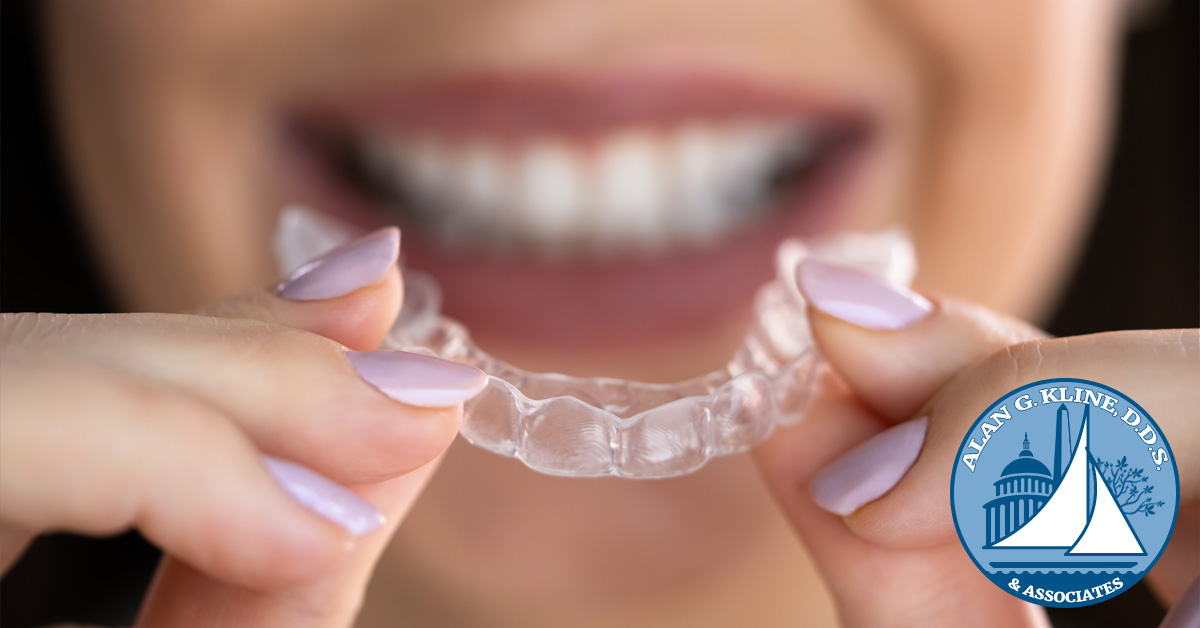
If you’re consistently waking up with a sore jaw or with neck, shoulder, or face pain, there’s a good chance you’re clenching and grinding your teeth at night. Also called bruxism, this is a common occurrence that often doesn’t wake you up while you’re doing it. In fact, people who share a bed with someone who clenches or grinds their teeth are often the ones who are seeking answers as to why it happens and how to fix it since the sound disrupts their sleep.
Why People Clenching or Grinding Their Teeth at Night
Think about why you might clench your teeth during the day—you’re stressed out. You’re in traffic; your spouse is saying something that rubs you the wrong way, etc. Something is bothering you if you are clenching your teeth. The same goes for nighttime teeth clenching and grinding.
Daytime stress and anxiety make their way into our brains at night, and often the result is an unsettled mind. You might notice you or someone you love clenching their teeth at night more during a particularly stressful time in life.
Other factors that can lead to nighttime clenching or grinding your teeth:
- Heavy Snoring
- Sleep Apnea
- Alcohol Use
- Drug Use
- Smoking
- Heavy Caffeine Usage
- Certain Medications, especially certain antidepressants
How to Stop Grinding Your Teeth at Night
Like anything else in life, trying to fix something usually entails a lifestyle change that leads to gradual improvement. For example, if you’re clenching and grinding your teeth at night because you’re snoring, the first step would be determining why. If it’s because you smoke a lot or are overweight, your first step is to start incorporating healthful habits.
Stress and Anxiety and Clenching and Grinding
Suppose you have a lot of stress and anxiety in your life. In that case, it’s time to take a step back and evaluate how best to face those issues, whether through therapy, meditation, or exercise (or all three). No one can alleviate all stress and anxiety, but try to wind down before bed to let your mind find a peaceful place before you sleep. Not checking email, listening to relaxing music, or reading a book are all good ways to detach from the day’s worries.
Clenching and Grinding Triggers
Look at the list of activities that can trigger bruxism, and see how to start making small changes that lead to permanent lifestyle changes.
How Seeing a Dentist Helps
If you’re unsure if you’re clenching or grinding your teeth at night, we can typically determine this for you. We can identify wear and cracks on your teeth that are telltale signs of nighttime bruxism.
Overnight Mouth Guard
One preventative dental practice would be to wear a night guard. Patients often find relief by wearing a mouth guard we custom fit for them to prevent teeth from grinding against each other. It provides a cushion between your top and bottom teeth, and patients typically wear them with no discomfort. A custom-made mouth guard can be a good remedy as you look at factors in your life that might need improvement for better overall health.
Tooth Damage from Clenching and Grinding Your Teeth
You may have some attrition or tooth damage from prolonged clenching and grinding. Cosmetic dental procedures may be considered. Make an appointment today, so we can determine if you’re grinding your teeth at night and help you find relief. Not only will your sleep improve, but so will the sleep of the person who shares your bed. Think of it as a buy-one-get-one-free service that we’re happy to deliver.